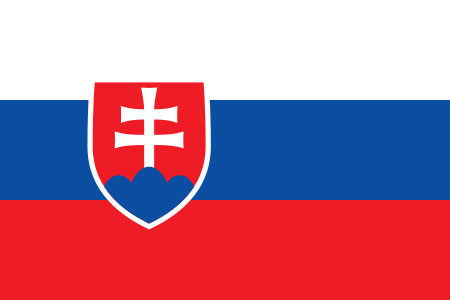HISTORICAL BACKGROUND
The 1992 Constitution provides for a general right of access to information and a specific right of access to environmental information:(1)
Article 26 (5) State bodies and territorial self-administration bodies are under an obligation to provide information on their activities in an appropriate manner and in the state language. The conditions and manner of execution will be specified by law.
Article 45 Everyone has the right to timely and complete information about the state of the environment and the causes and consequences of its condition.
The Act on Free Access to Information was approved in May 2000 and went into force on 1 January 2001.(2) Any person or organization can demand information held by state agencies, municipalities and private organizations that are making public decisions. The body must respond no later than 10 days after receipt of the request and must keep a registry of requests. Costs are limited to reproduction and can be waived.
There are exemptions for information that is classified as a state or professional secret, personal information, trade secrets (not including environmental pollution, cultural sites or anything related to public funds), information that was obtained "from a person not required by law to provide information" and who declines to release it, intellectual property, and information on the decision-making power of the courts, bodies in criminal proceedings, and habitats that need to be protected.
Appeals are made to higher agencies and can be reviewed by a court. A public official violating the Act can be fined SK50,000.
The law also requires that a variety of information is published by the government bodies including their structures, powers, procedures, and lists of regulations, guidelines, instructions and interpretations. The National Council is also required to publish the data of sessions, minutes, copies of acts and information on the attendance and voting records of MPs.
The Citizen and Democracy Association conducted four reviews of the implementation of the access and publication provisions in 2002 and found that basic information was usually provided but "problematic information" such as contracts and privatization is often withheld. It also found that information was often arbitrarily withheld or only given when an attorney was involved. The Association also was involved in several court cases including two where the Supreme Court ruled for disclosure and also provided legal assistance in other cases. In 2004, the government released a number of contracts with companies such as PSA Peugeot Citroen and Kia Motors after a court case by the Association.
A new Act on Protecting Classified Information went into effect in May 2004.(3) The law creates broader areas than the previous Act and allows public authorities to create their own lists of classified information. Under the previous law, Minister's wages were decreed to be classified information in 2002. The director of the National Security Office (NBU) said in 2001 that "Ministries decide on what is classified information and what is not. The laws contain annexes defining basic information and the degrees of secrecy. It is quite obvious that this has been done by incompetent people."(4)
In August 2002, the Parliament approved the National Memory Act which allowed access to files of the StB, the former communist-era secret police.(5) The law created the Institute for National Memory.(6) In November 2004, the Institute released 20,000 files on informers on its web site as part of an effort to put all of its 60,000 files online. The full list of collaborators was published in May 2005. In February 2006, the European Court of Human Rights ruled against Slovakia in the case of a person who had been accused of being a StB collaborator, finding that the denial of access to classified information that was used to justify the finding of collaborate violated Article 8 of the European Convention on Human Rights.(7)
Under the Act on Protection of Personal Data, individuals can access and correct person information held by public and private bodies.(8) It is enforced by the Office for Personal Data Protection.(9)
Slovakia agreed to the Aarhus Convention on access to environmental information in December 2005. Parliament approved a new environmental act in 2004 following a fight with NGOs and some ministries who opposed the act as limiting the right of access.(10) The new act only regulates the collection and publishing information. The right to access is still regulated by the Act on Free Access to Information.
2004 freedominfo.org Global Survey Results - Slovakia
Notes
Constitution of the Slovak Republic 1992. http://www.oefre.unibe.ch/law/icl/lo00000_.html
Act on Free Access to Information. http://www.info211.sk/zakon_en.php
ACT of 11 March 2004 on the Protection of classified information and on the amendment and supplementing of certain acts. http://www.nbusr.sk/english/NR452AJ.rtf
Slovak Security Office Director Discusses System of Security Screening, 2 November 2001 (translated by FBIS).
ACT 553/2002 Coll. of 19 August 2002 on Disclosure of Documents Regarding the Activity of State Security Authorities in the Period 1939 - 1989 and on Founding the Nation's Memory Institute (Ústav pamäti národa) and on Amending Certain Acts (Nation's Memory Act). http://www.upn.gov.sk/data/pdf/553_2002_en.pdf
Homepage: http://www.upn.gov.sk/
Turek v. Slovakia - 57986/00 [2006] ECHR 138 (14 February 2006).
Act no. 428 of 3 July 2002. http://www.dataprotection.gov.sk/buxusnew/docs/act_428.pdf
Homepage: http://www.dataprotection.gov.sk/
Act No. 205/2004 Coll. on assembling, storing and spreading environmental information.





















